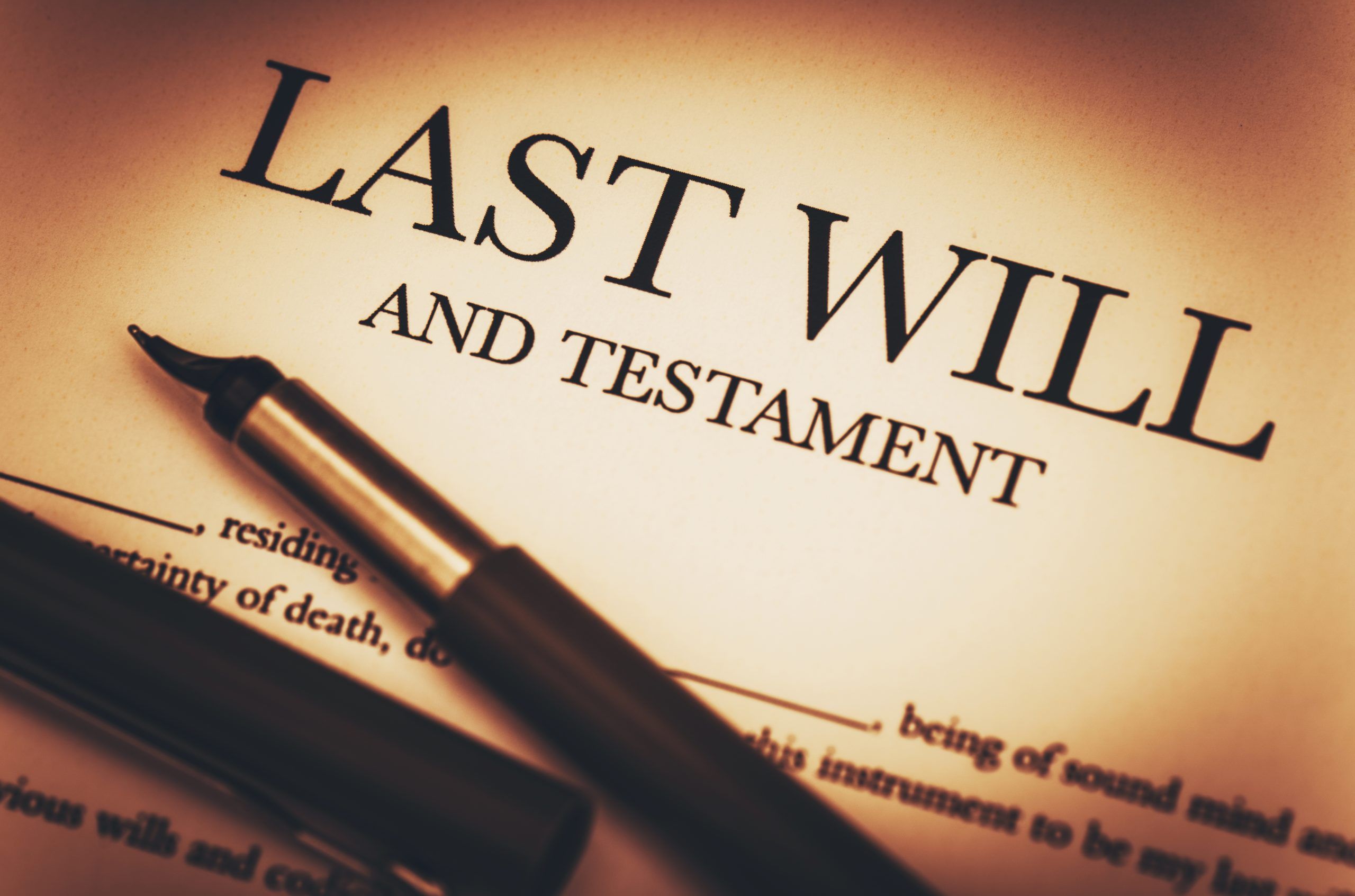Types Of Richmond Final Wills & Legal Trusts?
Firstly, there are simple wills, which are the most basic type of will. They outline how your assets will be distributed after your passing and appoint an executor to carry out these instructions.
Living wills are another type, which outline your medical wishes in the event that you become incapacitated and unable to make decisions for yourself.
Revocable living trusts are a popular option, as they allow you to manage your assets during your lifetime and avoid probate upon your passing.
Irrevocable living trusts, on the other hand, cannot be changed once they are created and are often used for estate tax planning purposes.
Testamentary trusts are created within a will and only come into effect after the person’s passing.
Finally, special needs trusts are designed to provide for a loved one with a disability without disqualifying them from government benefits.
Understanding these different types of wills and trusts can help you make informed decisions about your estate planning.
Simple Wills
You’ll learn about the most basic type of wills in Richmond, and how they can simplify the process of distributing your assets after you pass away. Simple wills are the most common type of will used in estate planning. They’re straightforward and easy to create, making them a popular choice for individuals with uncomplicated estates.
With a simple will, you can specify how you want your assets to be distributed after you die. This can include everything from money and property to personal belongings and sentimental items. It’s important to note that inheritance laws vary from state to state, so it’s crucial to consult with a lawyer familiar with Richmond’s laws to ensure your will is legally binding.
A simple will can give you peace of mind knowing that your wishes for your assets will be carried out according to your desires.
Living Wills
A living will is a document that outlines my medical directives and end-of-life decisions in the event that I’m unable to communicate them myself. It serves as a guide to my healthcare providers and loved ones, ensuring that my wishes are respected and followed.
In a living will, I can specify the types of medical treatments I do or don’t want, such as life-sustaining measures, resuscitation, and pain management. This document gives me peace of mind knowing that my desires will be honored, even if I’m incapacitated.
Medical directives outlined in a living will can also include organ donation and funeral arrangements. By expressing my end-of-life wishes in a living will, I can alleviate the burden of these decisions from my loved ones during what’s already a difficult time.
It’s important to regularly review and update my living will as my life circumstances and desires change. Having a living will in place is a responsible and compassionate way to ensure that my medical and end-of-life decisions are respected and honored.
Revocable Living Trusts
If you’re looking for a way to protect your assets and avoid probate court, a revocable living trust may be the solution you’re seeking. A revocable living trust is a legal document that allows you to transfer your assets into a trust during your lifetime, and then manage them as the trustee. This type of trust is revocable, meaning you can make changes to it or even revoke it entirely if you change your mind. The trust also allows for the seamless transfer of assets to your beneficiaries upon your death, without the need for probate court.
Estate planning and asset management are crucial components of a revocable living trust. By creating a trust, you can ensure that your assets are distributed according to your wishes and that your loved ones are taken care of after you pass away. The table below illustrates the potential benefits of a revocable living trust in comparison to a traditional will, highlighting the ease of estate planning and asset management. Consider consulting with a trusted attorney to determine if a revocable living trust aligns with your estate planning goals.
| Revocable Living Trust | Traditional Will |
|---|---|
| Avoids probate court | Requires probate court |
| Allows for asset management during lifetime | No asset management during lifetime |
| Private document | Public record |
| Can be amended or revoked | Cannot be amended once signed |
| Can help minimize estate taxes | No tax benefits |
Irrevocable Living Trusts
I find the topic of Irrevocable Living Trusts to be particularly interesting. They offer unique benefits compared to Revocable Living Trusts. One major advantage is asset protection. Assets transferred into an irrevocable trust are shielded from creditors and legal judgments. Additionally, irrevocable trusts can be used as a tax reduction strategy. Assets in the trust are not subject to estate taxes upon the grantor’s death. However, it’s important to note that once an irrevocable trust is established, it cannot be changed or revoked without the consent of all beneficiaries. This may limit the flexibility of the grantor.
Asset Protection
Protect your assets with a solid plan in place. One way to do this is through an asset protection trust. This type of trust is designed to protect your assets from creditors and lawsuits. It allows you to transfer ownership of your assets to the trust, which is managed by a trustee. The trust provides a layer of protection, so if you are sued or face financial difficulties, your assets are shielded from seizure.
To give you a better idea of the types of assets that can be protected, take a look at the table below. It outlines some common assets that can be included in an asset protection trust, as well as some potential risks associated with each asset. Keep in mind that the laws governing these trusts vary by state, so it’s important to work with an experienced attorney who can help you create a personalized plan that meets your specific needs and goals.
| Asset | Potential Risks |
|---|---|
| Real estate | Liability from accidents on the property |
| Investment accounts | Market fluctuations |
| Business interests | Lawsuits from disgruntled employees |
| Intellectual property | Infringement claims |
| Personal property | Damage or loss |
By incorporating an asset protection trust into your estate planning, you can have peace of mind knowing that your assets are safeguarded for your loved ones and future generations.
Tax Reduction
Looking to reduce your taxes and keep more of your hard-earned money? As a Richmond estate planning expert, I can tell you that tax planning is an essential part of any estate planning strategy.
There are various estate planning strategies that can help you minimize taxes and maximize your wealth transfer to your beneficiaries. One of the most common tax reduction strategies is gifting. By making gifts to your loved ones during your lifetime, you can reduce the size of your estate and lower your estate tax liability.
Another strategy is setting up a trust, such as a charitable remainder trust or a family trust, which can provide tax benefits while allowing you to retain control over your assets. By working with an experienced estate planning attorney, you can develop a tax planning strategy that meets your specific needs and helps you achieve your financial goals.
Limitations on Changes
Don’t get caught off guard by the limitations on changes to your estate plan, as they can have a significant impact on your family’s future. When creating a will or legal trust, it’s important to understand that once the document is signed and executed, making changes can be difficult.
This is because there are legal implications and estate planning considerations that come into play. For example, if you create a trust and transfer assets into it, you may not be able to remove those assets at a later date without facing tax consequences.
Additionally, if you want to make changes to your will, you may need to go through a legal process to do so, which could be time-consuming and costly. It’s important to work with a qualified attorney to ensure that your estate plan is created in a way that meets your needs and allows for flexibility while also taking into account these limitations on changes.
Testamentary Trusts
I want to talk about testamentary trusts, which are created within a will. They can be especially beneficial if you have minor children, as the trust can hold assets for their benefit until they reach a certain age.
Additionally, a testamentary trust can help protect your assets for future generations by specifying how they should be distributed and managed.
Established in a Will
You’ll find the section that focuses on wills and trusts that have been established in Richmond to be particularly relevant to your interests.
When it comes to estate planning, one of the most common ways to establish a trust is through a will. A trust established in a will is also known as a testamentary trust. This type of trust is created after the death of the person who wrote the will and is subject to the probate process.
Establishing a trust in a will allows individuals to control how their assets are distributed after their death, while also avoiding the complications that may arise from inheritance laws. Additionally, a testamentary trust can be used to provide for loved ones who may not be able to manage their finances on their own or who may be too young to inherit assets outright.
With the help of a legal professional, individuals can create a personalized estate plan that meets their unique needs and ensures that their assets are distributed according to their wishes.
Benefits for Minor Children
As we’ve discussed earlier, it’s crucial to ensure that your wishes are clearly stated and legally binding when establishing a will. However, one aspect often overlooked is the benefits it provides for minor children.
As a parent myself, I understand the importance of ensuring the welfare of our kids, especially when we’re no longer around. One of the significant benefits of having a Richmond final will and legal trust is the ability to create guardianship arrangements for your minor children.
This legal document allows you to appoint someone you trust to take care of your children and their needs. You can also outline specific instructions on how you want your children to be raised, such as religious beliefs, education, and extracurricular activities. Moreover, you can include provisions for the financial management of your children’s inheritance until they reach the age of majority.
By doing so, you ensure that your children’s future is secured, and their needs are met according to your wishes.
Protecting Assets for Future Generations
Protecting assets for future generations can be achieved through the use of trusts, which allow for the preservation and distribution of wealth in a tax-efficient manner. Legacy planning is all about creating a lasting impact and ensuring that your hard-earned assets are passed down to the next generation.
Trusts offer various benefits in achieving this goal, such as reducing estate taxes and protecting assets from creditors and lawsuits. Generational wealth is not just about leaving behind money, but also values and a sense of responsibility.
With trusts, you can set specific instructions on how your assets should be managed and distributed to future generations. This allows you to pass on not just your wealth but also your values and beliefs. Moreover, trusts can ensure that your assets are protected from events such as divorces and bankruptcies that may impact future generations.
By investing in legacy planning and utilizing trusts, you can create a lasting impact on your family and future generations.
Special Needs Trusts
If you’re thinking about providing for a loved one with special needs, a special needs trust can be an effective way to ensure their long-term care. These trusts are designed to protect the assets of individuals with disabilities while allowing them to remain eligible for government benefits such as Social Security and Medicaid.
Planning considerations for special needs trusts include determining the beneficiary’s needs, selecting a trustee who understands the complexities of managing a trust for a person with special needs, and ensuring that the trust is structured in a way that complies with state and federal regulations.
Eligibility requirements for special needs trusts can vary depending on the type of trust and the specific government benefits the beneficiary is receiving. Generally, individuals with disabilities who receive government benefits have limits on the number of assets they can own. A special needs trust can help ensure that the beneficiary does not exceed these limits while still providing for their long-term care needs.
By working with an experienced attorney, you can create a special needs trust that meets the unique needs of your loved one and provides peace of mind for the future.
Conclusion
In conclusion, creating a will or trust is an important step in planning for the future and ensuring that your assets are distributed according to your wishes.
Whether you choose a simple will, living will, revocable living trust, irrevocable living trust, testamentary trust, or special needs trust, it’s important to work with an experienced attorney who can help you navigate the complex legal requirements and ensure that your wishes are properly documented.
By taking the time to create a comprehensive estate plan, you can achieve peace of mind knowing that your loved ones will be taken care of after you’re gone.














